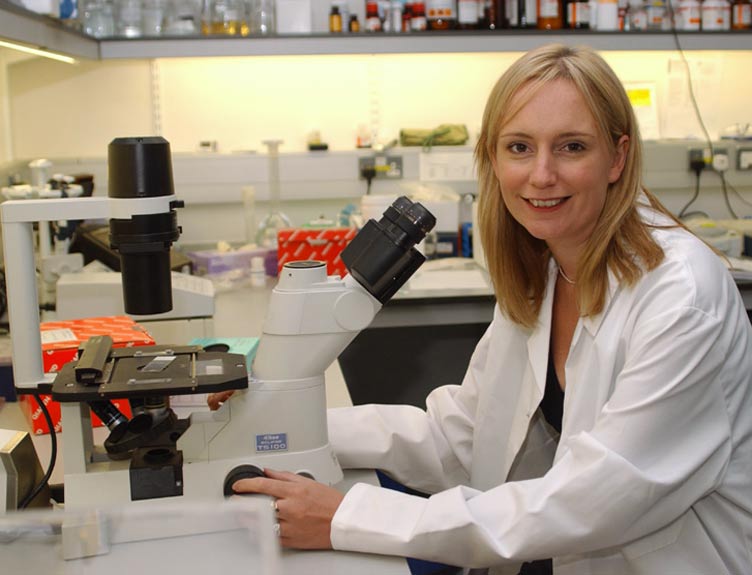RCSI researchers uncover breakthrough in predicting severity of breast cancer

Researchers from RCSI have identified a biomarker in patient blood which can predict the severity of breast cancer in patients and may enable clinicians to track patients throughout the course of their treatment. More ...
Around 75% of breast cancers are fuelled by the hormone estrogen which encourages them to grow. Although this type of breast cancer can be treated with drugs such as tamoxifen, many people develop resistance and see their breast cancer return.
The study published in Cancer Research reports on the identification of biomarkers which may help distinguish breast cancer patients with a greater risk of disease recurrence. This may lead to the development of personalised treatment programmes for individual patients.
The research, funded by Science Foundation Ireland (SFI) and Breast Cancer Ireland (BCI) investigated the protein changes in breast cancer that is resistant to treatment and found a higher level of a protein called HOXC11 and the presence of a secreted molecule S100-beta that is detected via a simple blood test.
Lead researcher, Dr Leonie Young, Leader of Surgical Research in RCSI, said: “We hope this research will provide vital information about drug resistance to ensure that people with breast cancer are getting treatments that will benefit them.”
Further work on this project is being funded by the UK based charity Breast Cancer Campaign and will provide vital information so that a new blood test can be designed to predict which breast cancers will become drug resistant to current therapies ensuring that only those who will benefit from a particular treatment actually receive it.
Breast cancer is the second most common cancer in Ireland after non-melanomatous skin cancer. Breast cancer accounts for 28% of all cancers in women in Ireland, with an average of 1,726 new diagnosis each year. Though management has improved over the years, breast cancer continues to be responsible for an average of 644 Irish female deaths each year. It is the leading cause of cancer related deaths in women in Ireland, with mortality 33% higher in Ireland than in the USA.



